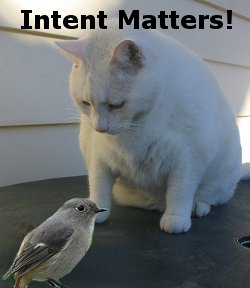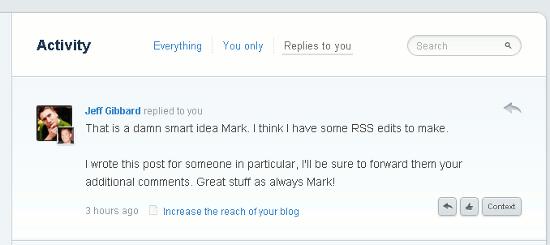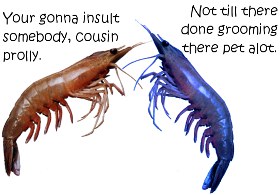
I read a lot of blogs, and I gather a lot of great ideas from them. There is a lot of amazing talent out there on the Internet, sitting at their computer every day to blog about what they know, what they think, what they do, and what they sell. A few of those squillion blogs will become popular with readers, but how?
It is easy for me to answer why I read the blogs I read. They help me to keep my thinking sharp with new ideas. My brain needs a lot of daily exercise to keep up with my industry.
It seems easy to define why the popular blogs I read are successful at their mission, but harder when I turn it around and look at my own work. I hope you can relate to this. I find that it is always harder to scrutinize myself than to scrutinize others.
I have been a bit blessed with having a solid readership for my SEO and social media marketing blog. I appreciate that very much, because I work hard at it. Once in a while, I have to consider “What makes it popular, and why do people subscribe and come back?” Then, on a bad day, I find myself questioning “Why do I keep doing this?” That is when I have to go and re-read “10 Really Good Reasons to Blog” and I am back at it again, quick.
Today is a good day, so I am asking myself the earlier question. Is it because I am in a popular industry? No, because there are a lot of SEO and social media marketing blogs with just three readers (spouse, mother, and author). Is it because I take my shirt off to blog because the ladies like that? No, although it may not hurt, because I am yummy like bacon (I should post more pictures). Is it because I have a squillion friends who love me? No, I am generally a nice guy, but I don’t try to please everybody, and I piss a few people off, too (like this Bhashkar guy). Is it because I throw down a clever line here and there to be entertaining? No, because I will never be as funny as this cat video with 47 Million views (damn them cats).
When I begin to think about things which make a blog popular, it seems that my thoughts keep leading me back to “intent”. Good blogging tools, a lot of coffee, and just a slight touch of insanity can help, but it is not enough!
I know, I know … people say that “content is king”, or that “engagement” and “social equity” are important. Sure, we can throw a whole lot of silly buzz phrases on the table to sort through. It really does take a lot of things coming together just right to produce something that people want.
I think that in the end, even if you get every other piece right, but your intent is flawed, it is as fragile as a house of cards.
What is Your Blog’s Intent?
Let’s define this: Clearly, if you have a blog, you have an intent. Whether is just to pour your mind out to the Internet, or to bring more brand recognition to a product or service, nobody does this without something that drives them to do it.
I will share my intent with you, and I hope it will help you start thinking about yours. So, let’s see, why do I write this blog?
The focus of this blog is to help educate people about things which can help them. I like to help people think and create their own ideas. I like to teach people about things which they may find useful. I also like to dispel the many SEO lies which are common in the industry.
When I say that intent is important, here is how I look at it: If my intent was centered around selling something rather than educating and helping people, the direction would be totally different. The intent would show through, and the value to others would be far less.
Stop Seeing “Everybody” as a Potential Customer!
I hope that sharing my intent will help you think about yours, and your strategy. Here I go, trying to be helpful, again. Now, you may wonder “How is there any room left for a strategy, and how can a blog possibly be worth all of the headache?”
When I think about my intent, it is what I wish to provide for others. That does not have to mean there is no benefit in it for me, but when I focus on these things which benefit others, my work is far better and it makes me a swell guy.
The good news is that I don’t view you as my potential customer. Sure, maybe you are, but probably not. Most people that land on any blog are not there to buy stuff. In the case of company blogs, the smart companies already know this.
Pssst: Let me whisper a thought in your ear:
Keep Your Intent Dear to You
It can be easy to wander off the path of your intent, but don’t! Always remember the overall purpose of being useful, and know that it really will make the difference in reaching longer term objectives. If you have a very purposeful intent, it will be easier to stay on track.
My blog’s intent is sincerely focused on being helpful. I go out of my way to do that. As a benefit, it enhances my resume as a SEO and social media marketing professional and reflects my knowledge. A tiny percentage of people will contact me with an interest of hiring me as a consultant, or as their new Director of Marketing.
I ask myself: “What if somebody offers me a salary so big I can barely spend it all and puts me in a big shiny office building as their head marketing guy working 100 hours per week?”
My answer is: “I will still be right here to share what I know with others, just as I have been for years.”
That is how I know that my intent is right.
If selling something was the primary goal, I would not ask for your input, your brainstorms, or your time. I would also not expect anybody to subscribe and keep coming back. Although, I probably would still ask to pass my name along to somebody who may need me … but that is just my eensy little selfish side talking. (Hint: See sharing and bookmarking links below.) Hey, I have a family of five to feed, after all.
What is your intent, and how are you expressing it to others?
Cat Photo Credit to lincolnlog via Flickr
Podcast: Play in new window | Download




